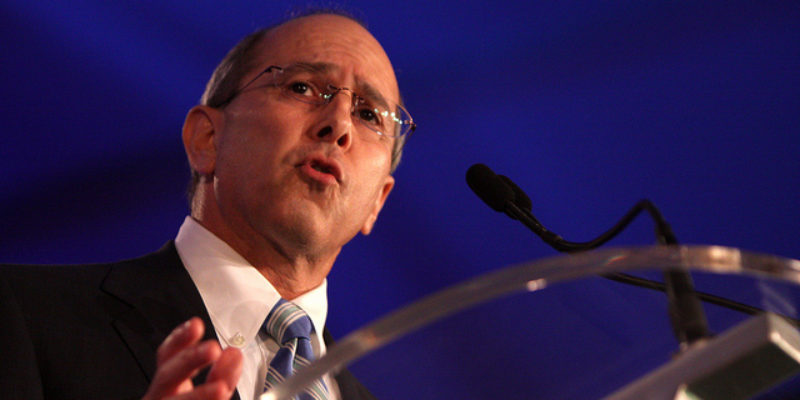When Pope Francis addressed Congress last month, he called on all Americans to “keep in mind all those people around us who are trapped in a cycle of poverty. They too need to be given hope.”
The pope is right to challenge us to help those trapped in poverty — today, too many Americans are struggling to get ahead.
One obvious reason why so many need help is that, under President Obama’s economic policies, our nation’s economy simply isn’t growing like it should — and like we were promised it would. Insufficient growth has kept too many on the bottom rungs of the economic ladder, and recent data hasn’t provided much hope for improvement. Median household incomes fell substantially during and after the 2007-2009 recession and still haven’t recovered. A smaller share of American adults is working or looking for work than at any time since the 1970s. And a record number of people have simply given up looking for jobs.
But there’s more to the poverty story.
While Obama’s economic policies have failed to spur growth, our anti-poverty programs have long failed to promote upward mobility and move people from welfare to work. Despite record spending, poverty remains high a full five years after the recession ended. Millions remain stuck in it year after year, with concentrated poverty increasing. One out of five children lived in poverty in 2014. And many have even lost confidence in opportunity and the American dream, according to a recent CNN poll: “Nearly six in 10 people [say] the American Dream is impossible to achieve. … Young adults, age 18 to 34, are most likely to feel the dream is unattainable, with 63 percent saying it’s impossible.”
For people to escape poverty for good, we need better policies that support work, strengthen families and move America forward. We should start by revitalizing the connection between work and the benefits low-income parents receive.
The 1996 welfare reform law for the first time connected welfare benefits with an expectation that recipients would work or participate in training. That work requirement led to record increases in employment and earnings and a record decrease in poverty and welfare dependence after it was enacted.
But over time this reciprocity between benefits and work has been undermined by an array of loopholes. Today most adults on welfare don’t perform even a single hour of work or activity in a typical month in exchange for their benefits. Our welfare-to-work construct has fallen apart, and the system is failing the poor. It’s not right — this requirement should be restored and expanded so it is a part of other programs as well.
Simply put, we need to return to engaging low-income parents in work and activities that will lead them into jobs and off welfare for the long run.
We also need real accountability, not just for those receiving benefits but also for welfare programs themselves. Today, the states that run welfare programs are just not held accountable when too many people stay on benefits and don’t find work. That helps no one. Reforms must include a focus on outcomes, such as holding states accountable for the employment retention and advancement of low-income adults who would otherwise be collecting welfare checks.
We know also — with significant data to support it — that strengthening families and promoting marriage is key to fighting poverty as well. Current federal policy includes explicit penalties against marriage that make no sense. And we should test — with rigorous evaluations — innovative approaches to strengthening marriage and families and helping more families leave welfare for work.
Some might say there’s not enough funding to do all that. But the reality is that current federal funding — which our reforms would maintain — is the same as it was in 1996 when there were twice as many people on the welfare rolls. We just need to use this funding more effectively so more people escape the cycle of poverty instead of remaining in it.
Francis was right when he said, “The fight against poverty and hunger must be fought constantly and on many fronts, especially in its causes.” To fight poverty and win, we need policies that succeed in helping parents go to work. That requires a new round of welfare reform, building on what we know worked in the past.
Dr. Charles Boustany serves as Chairman of the House Ways & Means Subcommittee on Human Resources, with jurisdiction over federal welfare programs. He is leading the effort to make the first significant reforms to the Temporary Assistance for Needy Families (TANF) welfare program since the landmark welfare reform effort of 1996. This piece originally appeared at The Hill.
Advertisement
Advertisement

